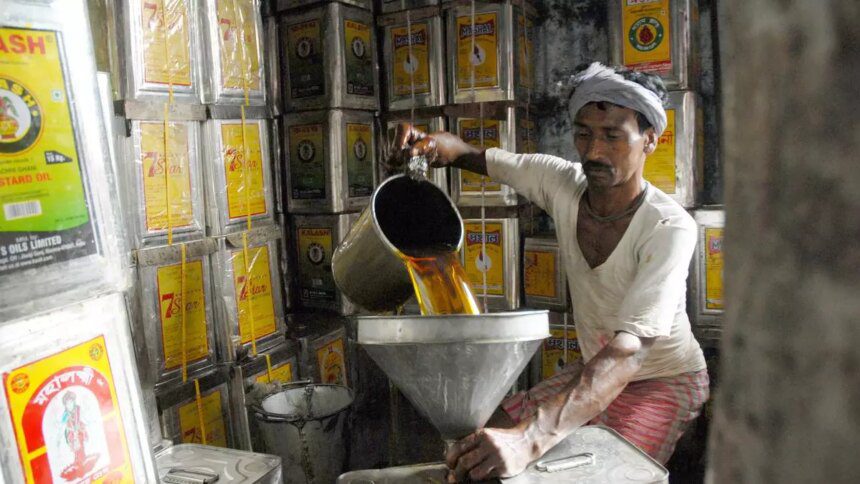The Solvent Extractors’ Association of India (SEA) has raised concerns about the significant increase in the import of refined soyabean oil and palm oil from Nepal to India, in violation of Rules of Origin. SEA has urged the Government to regulate the inflow of edible oils from Nepal and other SAARC countries.
In a letter addressed to the Prime Minister and various Central ministers, the SEA President, Sanjeev Asthana, highlighted that the import of edible oil at zero duty under the SAFTA agreement from Nepal is causing havoc in various regions of India. This influx is not only adversely impacting domestic refiners and farmers but also leading to a loss of revenue for the Government.
Nepal, with an annual edible oil requirement of about 4.30 lakh tonnes, has been importing large quantities of crude edible oils and exporting refined oils to India at discounted rates. This practice has intensified since India raised the import duty on edible oils in September 2024.
Between October 15, 2024, and January 15, 2025, Nepal imported 1.94 lakh tonnes of edible oils, mainly crude soyabean oil and sunflower oil, and exported 1.07 lakh tonnes to India. Market sources suggest that around 50,000 to 60,000 tonnes of refined oil per month are flowing from Nepal to India due to the duty advantage under the SAFTA agreement.
The SEA President emphasized that the excessive duty-free import of edible oils is not only threatening the survival of the vegetable oil refining industry in India but also distorting the market and undermining the purpose of high import duties on edible oils.
He urged the Government to suspend the duty-free import of edible oils under SAFTA and renegotiate the agreement for agro-commodity imports. Additionally, he suggested monitoring essential agro commodity imports closely in consultation with sector associations to protect the interests of farmers and the local economy.
The SEA President recommended restricting oils not meeting the Rules of Origin under the duty-free import region and preventing dumping from non-SAFTA countries by misusing SAFTA provisions. He called for the Government to implement a provisional safeguard measure, suspend duty-free edible oil imports, and impose a minimum import price based on the cost of oil production in India.
To regulate the flow of imports from Nepal to India, he proposed channeling imports through public sector undertakings like NAFED and fixing quotas for import of refined oils from Nepal. The SEA President stressed the importance of protecting the Indian economy and farmers from such detrimental practices and safeguarding the interests of the local industry.










